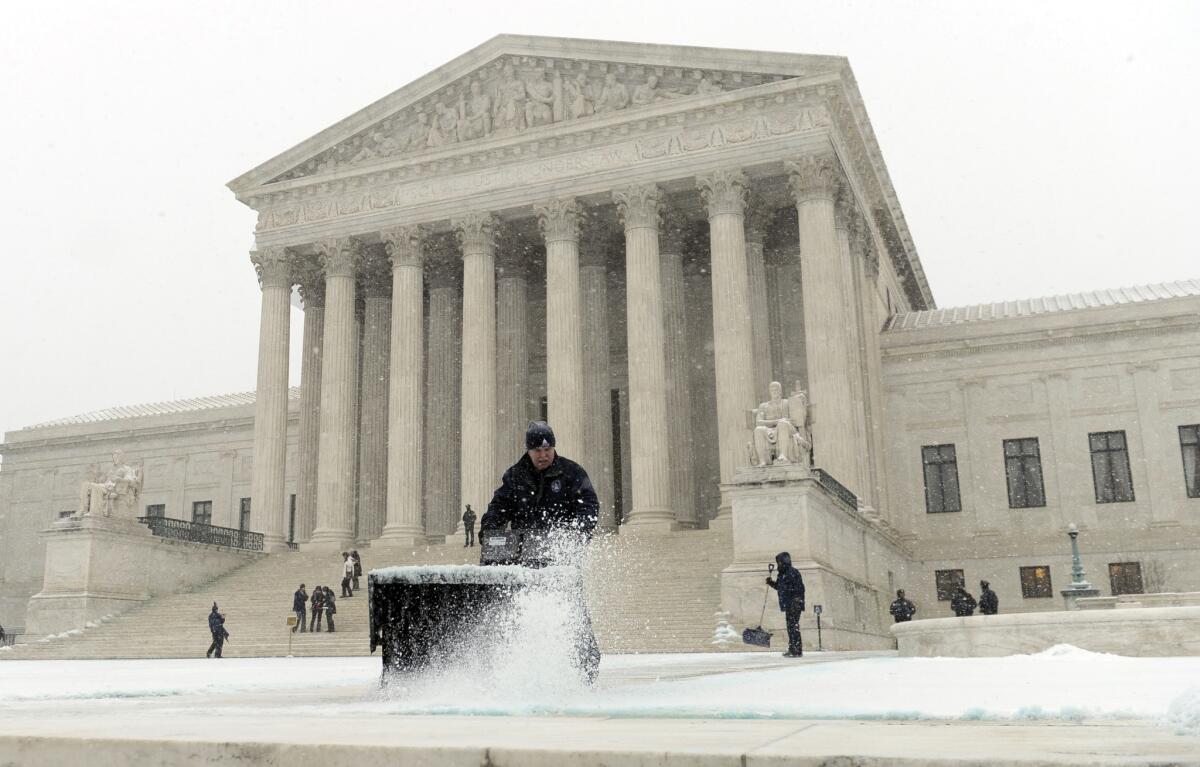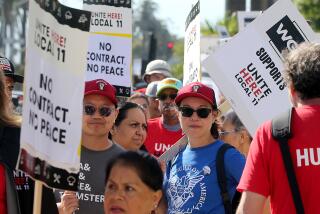Who should pay union dues?

Workers shouldn’t have to choose between their jobs and their consciences. They shouldn’t have to pay money to press a political agenda they don’t agree with, and if they belong to a union that uses their dues for politicking, as most unions do, they should be able to withhold the portion of money that goes to campaigning and lobbying. To require otherwise would be to essentially compel employees, through their union dues, to make statements or take positions in violation of the free-speech principles embodied in the 1st Amendment.
But that doesn’t mean employees should be able to avoid paying anything to the union that negotiates to improve their pay, benefits and working conditions. Unions represent all workers in negotiations, including non-members. Even employees who don’t like their unions’ political activities — even employees who don’t like their unions and choose not to join — should pay the portion of dues, or an amount equal to it, that covers the basic work of collective bargaining. It’s a fee for a service with obvious value to the employee.
That’s as true of public sector employees as anyone else. They don’t have to join the union, but if they’re getting the benefit of the negotiation, it only makes sense that they pay their fair share for that portion of the union’s work.
Now a “right to work” organization has brought a case to the Supreme Court arguing that the very existence of a public employee union is a political statement. Bargaining for a higher wage, the organization reasons, is a matter of political discourse because it is a policy argument: State money should be spent on employee wages rather than some alternative budget priority. Therefore, even when a union charges non-members merely to cover bargaining expenses and not for its political campaigning or lobbying, it is violating the 1st Amendment rights of those workers.
That’s more than a bit of a stretch, and the court would be wise to reject the argument. Paying for a service performed at the bargaining table, with clear and direct benefit to the worker, is easily distinguishable from being compelled to pay for campaign donations or political lobbying, even if the two functions are in some ways linked.
The public employee union in this case is also trying out a 1st Amendment argument, based on an earlier Supreme Court decision finding diminished free-speech protection for workers who speak out in the course of their employment. It’s creative but unnecessary. A public employee union does not compel anyone to agree with its politics merely because it collects a fee for negotiating a labor agreement.
More to Read
A cure for the common opinion
Get thought-provoking perspectives with our weekly newsletter.
You may occasionally receive promotional content from the Los Angeles Times.










